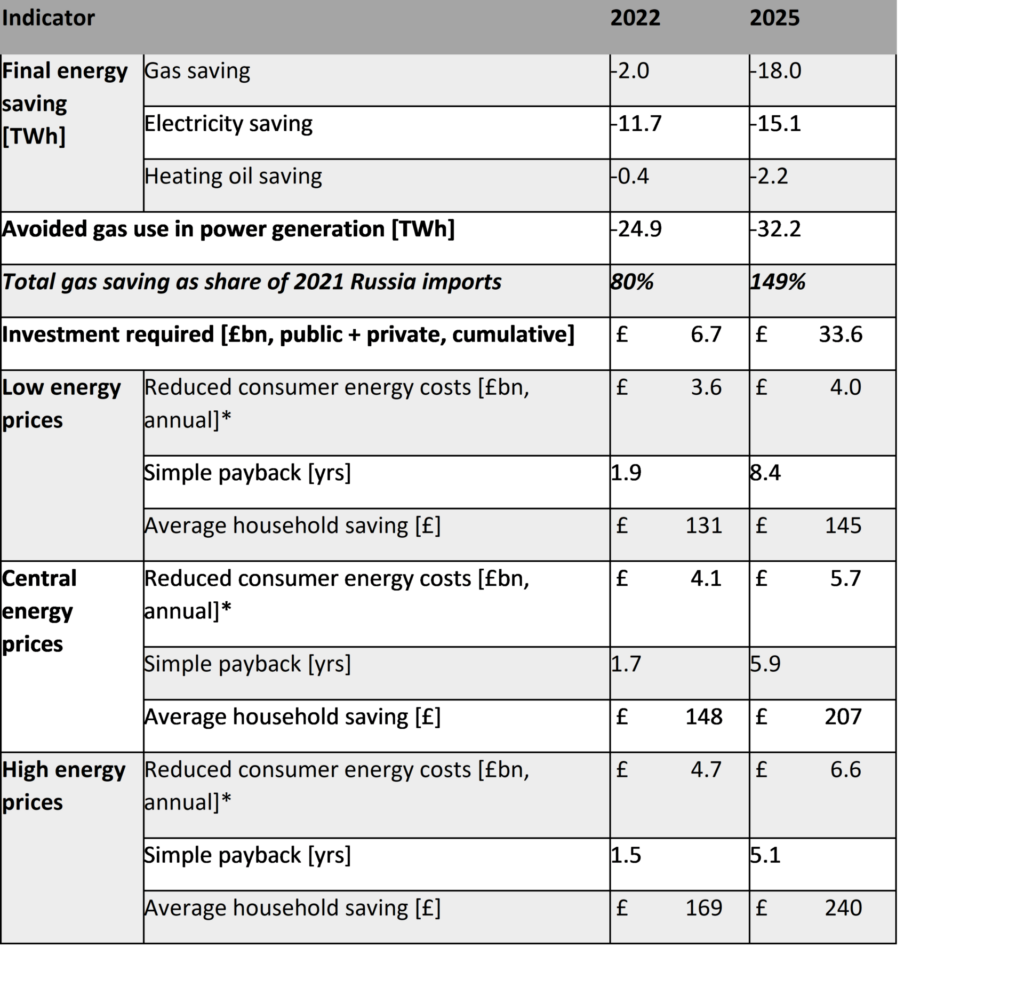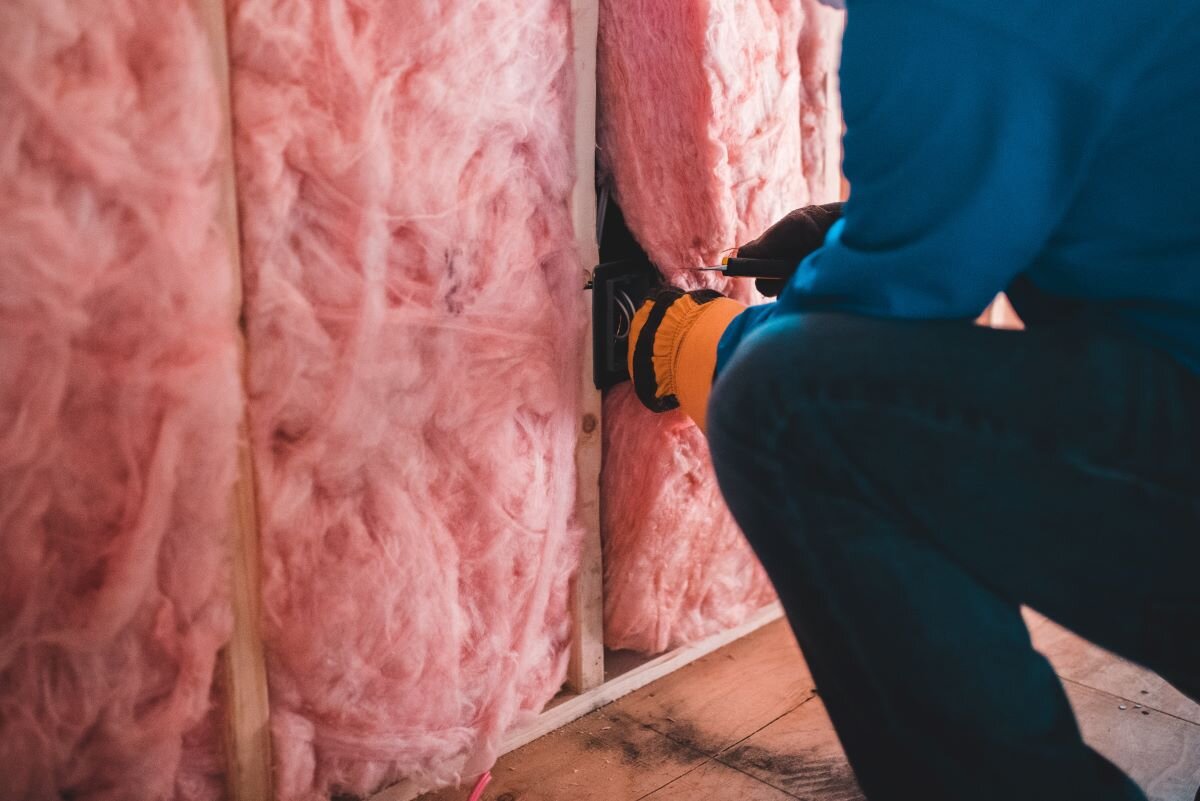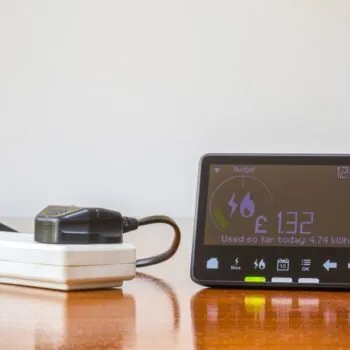Energy efficiency measures for homes could cut Russian gas imports by 80% this year. Combined with a renewables drive, this means the UK could eliminate Russia from its gas supply completely in 2022.
Households could see an average saving of between £130 and £170 this year, with the capital investment needed in 2022 paid back through savings within two years.
A national public information campaign should underpin this, to enable people to reduce their energy demand and save money through simple, sensible and safe actions without compromising on comfort or health.
Story
A new report by independent climate change think tank E3G finds that the best way to limit the UK’s exposure to high energy prices and eliminate Russian gas imports from the energy system is to reduce our overall demand for gas through a step-change in our approach to energy efficiency and heating.
Recognising the need to move quickly, the report proposes nine actions – the ‘Home Energy Security Plan’ – that the government could announce in the Energy Supply Strategy and at the Spring Statement to cut household gas demand, working through existing policies and mechanisms. These include boosting funding for energy efficiency and heat pumps, cutting VAT on green home measures, removing legacy policy costs from electricity bills, and accelerating plans to make sure all new build homes are zero carbon.
Taken together, these measures would cut gas demand equivalent to 80% of Russian gas imports this year, and 149% of imports by 2025 [3], enabling more UK gas exports to flow into supporting EU neighbours.
Quotes on cutting Russian gas imports
Colm Britchfield, Researcher at E3G said:
“With government support, ordinary UK households can play a huge role in cutting Putin out of our energy system. The Home Energy Security Plan would quickly boost investment in energy efficiency and heat pumps and help cushion the impact of rising energy prices.”
Pedro Guertler, Programme Leader at E3G said:
“The UK government must act now to permanently convert fossil gas dependency and profits into reduced living costs for all. The government has the tools to make big gains on security through energy efficiency measures for households this year. We must seize the opportunity at the upcoming Spring Statement.”
Available for comment on cutting Russian gas imports
Pedro Guertler and Colm Britchfield are available for commentary – please contact them directly:
m: +44 (0)7867 314 004, pedro.guertler@e3g.org
m: +44 (0)7542 865 564, colm.britchfield@e3g.org
Notes to Editors
E3G is an independent European climate change think tank with a global outlook. We work on the frontier of the climate landscape, tackling the barriers and advancing the solutions to a safe climate. Our goal is to translate climate politics, economics and policies into action. About – E3G
A full list of the key measures is provided below:
- Increase support for energy efficiency through existing schemes
- Accelerate take-up of the most efficiency appliances
- Launch a major new public information campaign
- Expand the Boiler Upgrade Scheme to speed up the electrification of heat
- Remove the tax penalties holding back energy saving home upgrades
- Lower bills and incentivise electrification by removing legacy policy costs
- Introduce a comprehensive training offer to fill skills gaps
- Incentivise energy efficiency upgrades by amending the stamp duty system
- Accelerate the phase-out of gas boilers in new build homes
Key metrics for the Home Energy Security Plan (data from CCC ‘Tailwinds’ scenario):

For further enquiries email press@e3g.org or phone +44 (0)7783 787 863


